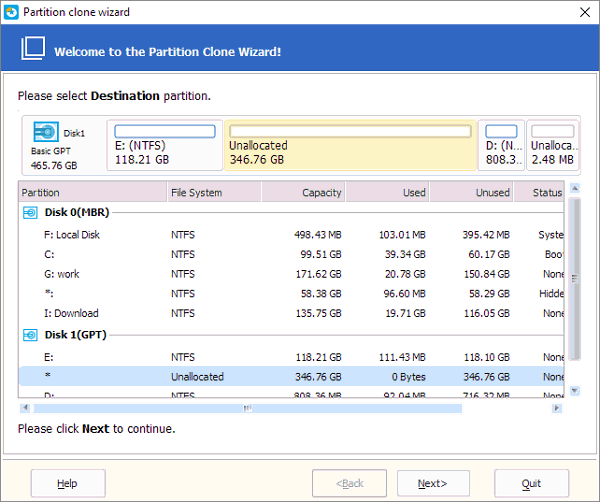
In case of this first argument will be a partition and in case of - a whole dataframe. apply () on pandas.DataFrame ), the function that you try to map (or apply) will be given dataframe as a first argument. Open a terminal window (with root permissions) and type the following commands. When you call mappartitions (just like when you call. It needs to be run on the remote machine you want the information with an admin account. Disk Partitioning is the process of dividing a disk into one or more logical areas, often known as partitions, on which the user can work separately. Now that weve successfully recovered the disk name ( sda ), the partition name ( sda2 ), and the names of the volume group ( vg) and logical volume ( lvroot) we want to resize/extend, we can proceed with the actual task. You can call it with : $resultVolumeMappingFromKernel = Invoke-Command -ScriptBlock $scriptBlockInvokeCommandKernel32 -ComputerName $hostName -Credential $credential -ArgumentList (,$arrayOfVolumeSerial) $volumeKernelInfo = ::GetPhysicalDriveString($volumeString)
DISK MAP TO PARTITION WINDOWS
In Windows XP, a Select Partition Type screen appears next, where you should choose Primary partition. Choose Next > on the New Simple Volume Wizard window that appeared. In Windows XP, the option is called New Partition.
In u-boot console, the 'gpt' command can be used to write the gpt partition table: gpt - GUID Partition Table Usage: gptGet-CimInstance -ComputerName $ComputerName ` Write GPT partition table through U-boot. $partitions = Get-CimInstance -ComputerName $ComputerName Win32_DiskPartition


Here is Chad Miller's answer modified to work with PowerShell Core and with proper quotes and apostrophes so that it actually works on Linux/Windows and regardless of term settings (i.e., UTF-8 or not): param ($ComputerName)


 0 kommentar(er)
0 kommentar(er)
